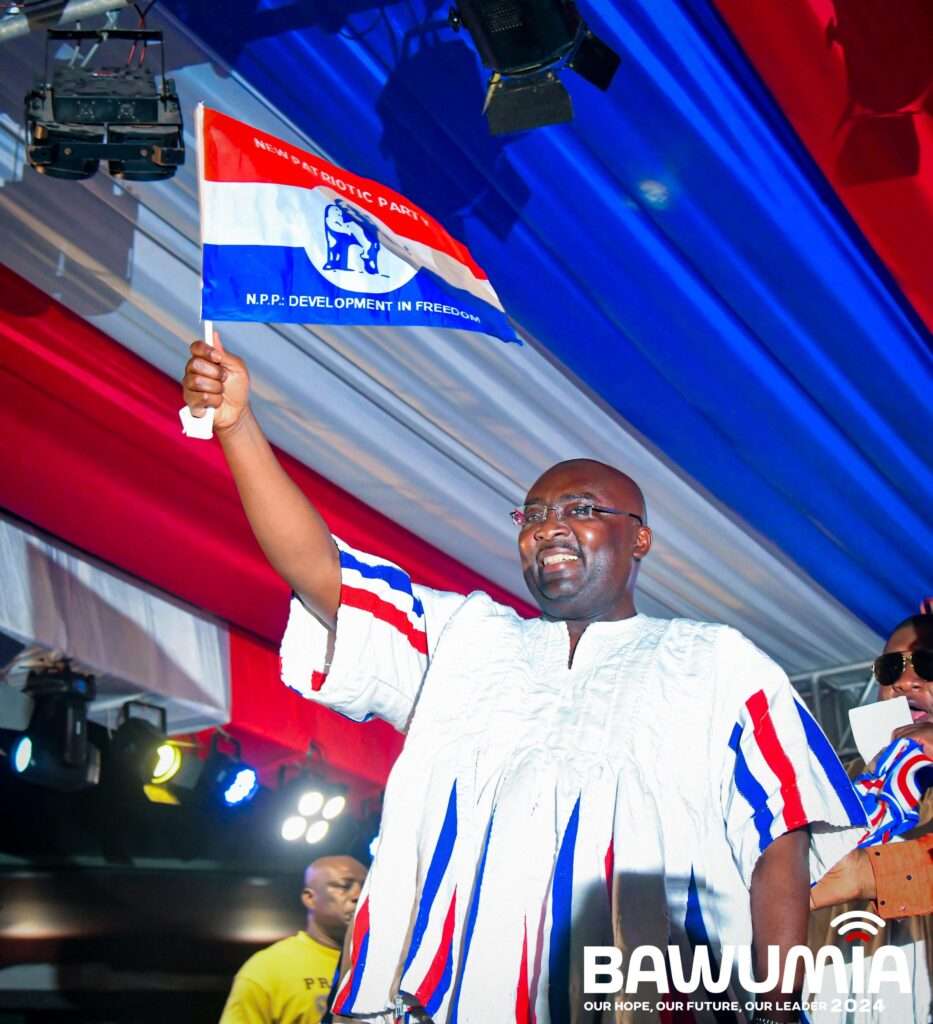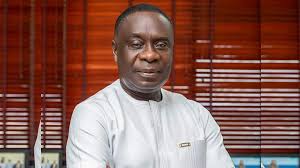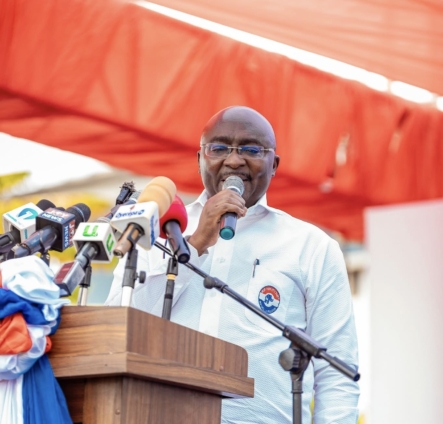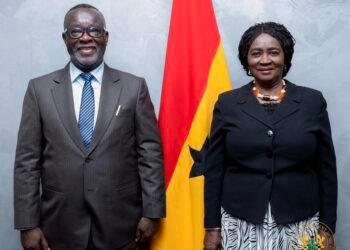The political atmosphere has once again been ignited as Dr. Mahamudu Bawumia finds himself at the center of heated controversy.
The Director of Legal Affairs of the ruling National Democratic Congress (NDC), Edudzi Tamakloe, has sharply criticized the defeated New Patriotic Party (NPP) presidential candidate for what he described as insensitive and reckless comments following the 2024 elections.
Dr. Mahamudu Bawumia was captured in a video blaming Lawyer Bediako, the NDC’s parliamentary candidate for Akwatia, for the untimely death of Hon. Ernest Kumi, the deceased member of parliament for the constituency.
According to the former Vice President, the election petition filed by the NDC against Hon. Ernest Kumi resulted in his death.
Tamakloe described the statement as yet “another new low from Dr. Bawumia,” condemning the former vice president for attempting to turn personal tragedy into political ammunition.
He stressed that Ghana’s democracy had provided constitutional mechanisms for resolving election disputes.
“The 1992 Constitution allows for petitions to cure election-related disputes. This mechanism is to reduce self-help in resolving election disputes. It is curious that Dr. Bawumia decided to play politics with the pain of Hon. Ernest Kumi and his family.”
Edudzi Tamakloe

Tamakloe reminded Ghanaians that it was not unusual for parties to file petitions after closely contested elections.
He pointed to the 2012 general elections, when Dr. Bawumia, President Nana Addo Dankwa Akufo-Addo, and the late Jake Obetsebi Lamptey took President John Dramani Mahama to the Supreme Court, engaging him in an intense eight-month-long legal battle over the results.
The NDC legal head emphasized that, despite these drawn-out challenges and the immense pressure surrounding the case, President Mahama demonstrated remarkable resilience, determination, and unwavering strength in weathering the political storms that tested his leadership over the years.
Bawumia’s ‘Troubling’ Political Tactics
Edudzi Tamakloe further argued that Dr. Bawumia’s political style has frequently veered into troubling territory, often disregarding the bounds of decency.
He recalled defending several NDC Members of Parliament—such as those from Jomoro, Krachi West, and Pusiga—whose electoral victories were legally contested, underscoring his point about the recurring nature of such disputes.

“I recall vividly when he started weaponizing his religion for political gain; that there was a need to vote for a Muslim Vice President, so that at the swearing-in ceremony, there would be someone holding the Holy Quran.”
Edudzi Tamakloe
Tamakloe argued that the approach reflected a short-term mindset, suggesting that Bawumia often acted impulsively for immediate political advantage without considering the broader, long-term implications of his actions.
Tamakloe further pointed out that this approach contributed to Bawumia’s loss in critical constituencies. “No wonder he lost in all the Zongos except the Winneba,” he remarked.
The NDC lawyer compared the situation to the prolonged political and legal battles endured by Hon. James Gyekye Quayson, the NDC Member of Parliament for Assin North, who faced relentless challenges from the NPP between 2020 and 2024.

For Tamakloe, these examples underline a troubling pattern in Dr. Bawumia’s political career — a tendency to use divisive rhetoric, capitalize on grief, and manipulate public sentiment to score points.
He stressed that while election petitions are a legitimate constitutional process, reducing them to a blame game dishonors the purpose of democracy and risks inflaming tensions in an already polarized political environment.
As Ghanaians reflect on the aftermath of the 2024 elections, his comments raise important questions about the boundaries of political discourse in the country. Should leaders exploit personal loss for political advantage, or should they draw the line at moments of grief?
Tamakloe’s remarks suggest that Dr. Bawumia has crossed that line, and in doing so, he has ignited yet another storm in Ghana’s evolving democratic story.
His comments not only highlight the deepening tensions between the two dominant political parties but also raise broader concerns about the tone and maturity of political discourse in the country.
At a time when many Ghanaians are calling for unity and responsible leadership, such controversies risk diverting attention from pressing national issues and undermining public confidence in the democratic process.
READ ALSO: TotalEnergies Secures New Offshore Exploration Permit in Congo Republic























